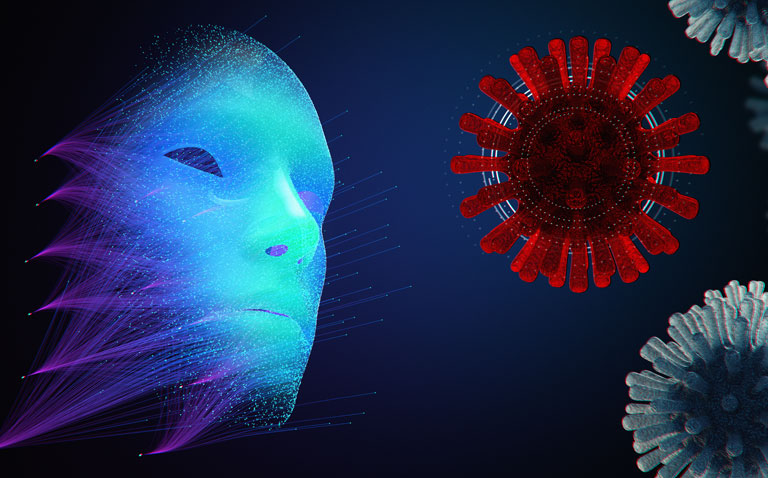Current testing for COVID-19 relies on a PCR test using nasopharyngeal swabs although results can take up to 48 hours and sometimes even longer.
Now a team from Weill Cornell Medicine, New York, has created an artificial intelligence (AI) system that can use routine test data results to determine if a patient has COVID-19. Normally, clinicians order a battery of blood tests in addition to a PCR test, including routine laboratory tests and a chest X-ray and these results are generally available within 1 – 2 hours. Researchers therefore hypothesised if the results of the routine laboratory test could be used to predict if someone was infected with COVID-19 without the PCR test. The included patient demographics such as age, sex, race into a machine learning model and incorporated the results for 27 routine tests. The laboratory results were made available two days before the PCR test result. The dataset included a total of 5893 patients admitted to hospital between March and April 2020 and they excluded individuals under 18 years of age and those who PCR result was inconclusive and patients without laboratory test results within two days prior to the PCR test.
Findings
A total of 3356 patients who were tested for COVID-19 were included with a mean age of 56 years of whom, 1402 were positive and 54% emergency department admissions. Using a machine learning technique known as a gradient boosting decision tree, overall, the algorithm identified COVID-19 positivity with a sensitivity of 76% and a specificity of 81%. However, limiting the analysis to emergency department patients, increased the sensitivity to 80% and the specificity to 83%. Moreover, the algorithm correctly identified those who had a negative COVID-19 test result. A recognised limitation was the testing was specific those admitted to hospital with moderate to severe disease and thus requires further work to identify milder cases.
Nevertheless, the authors concluded that their algorithm is potentially of value in identifying whether patients have COVID-19 before they receive the results of a PCR test.
Reference
Yang HS et al. Routine laboratory blood tests predict SARS-CoV-2 infection using machine learning. Clin Chem 2020; https://doi.org/10.1093/clinchem/hvaa200










